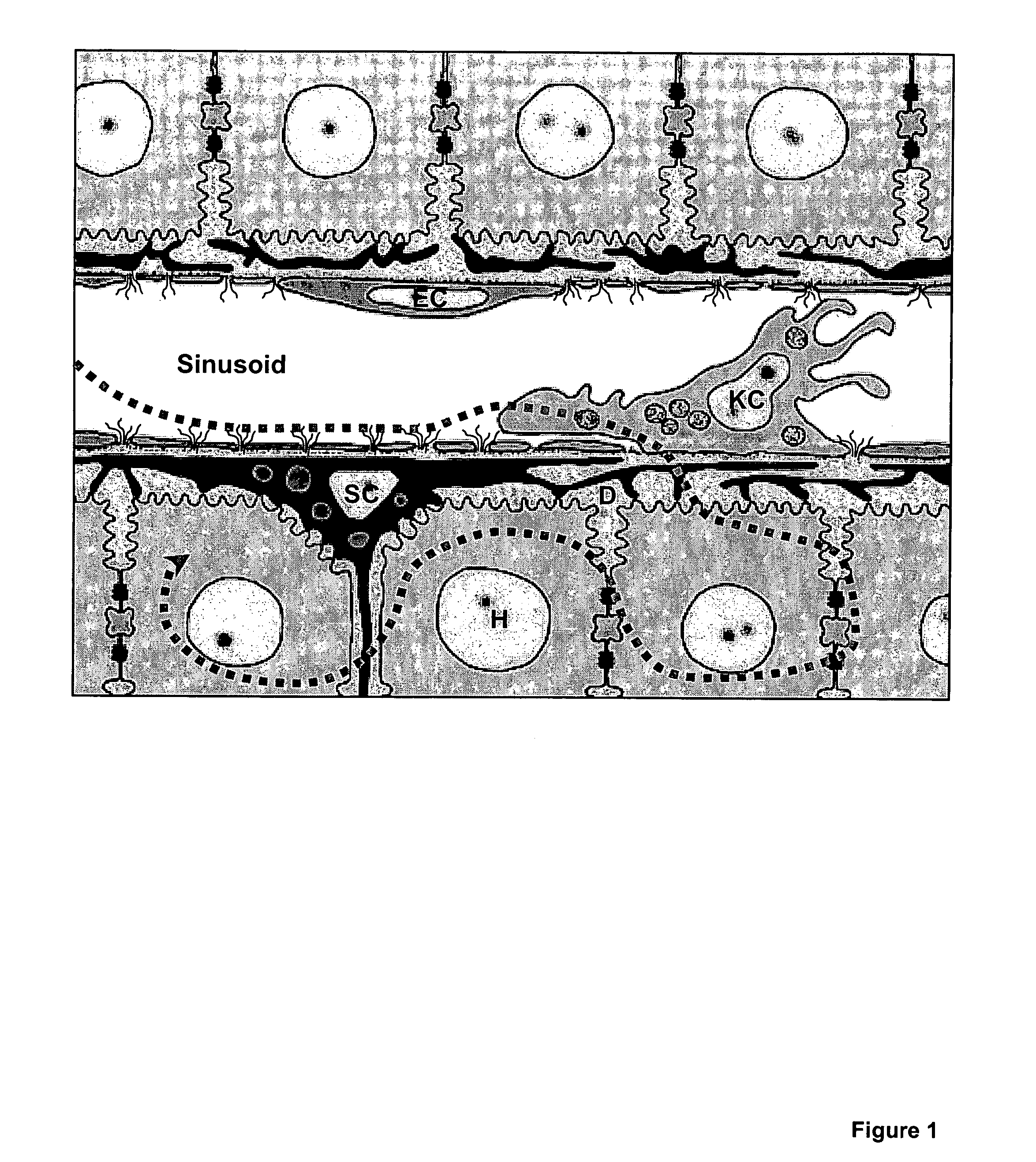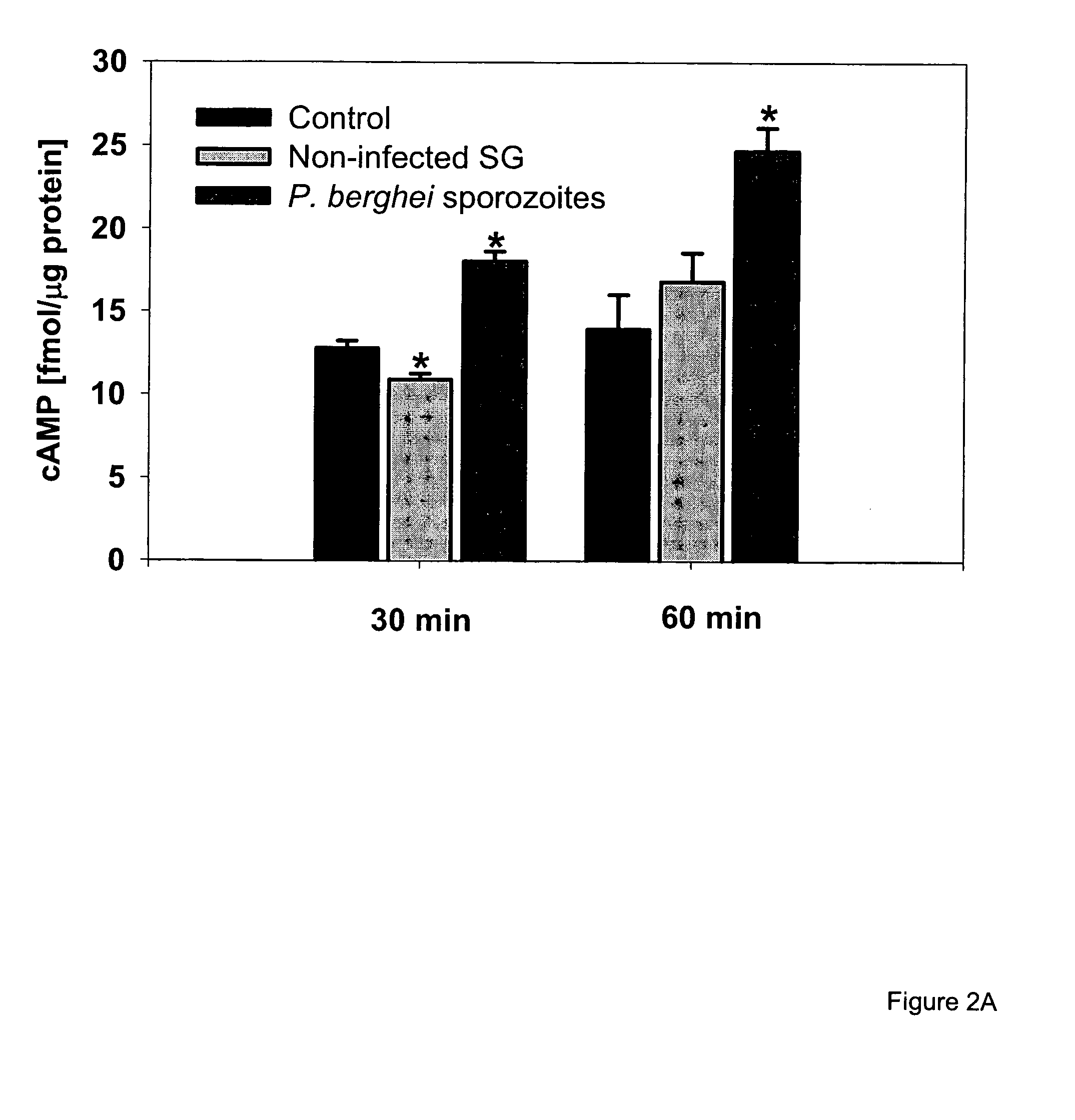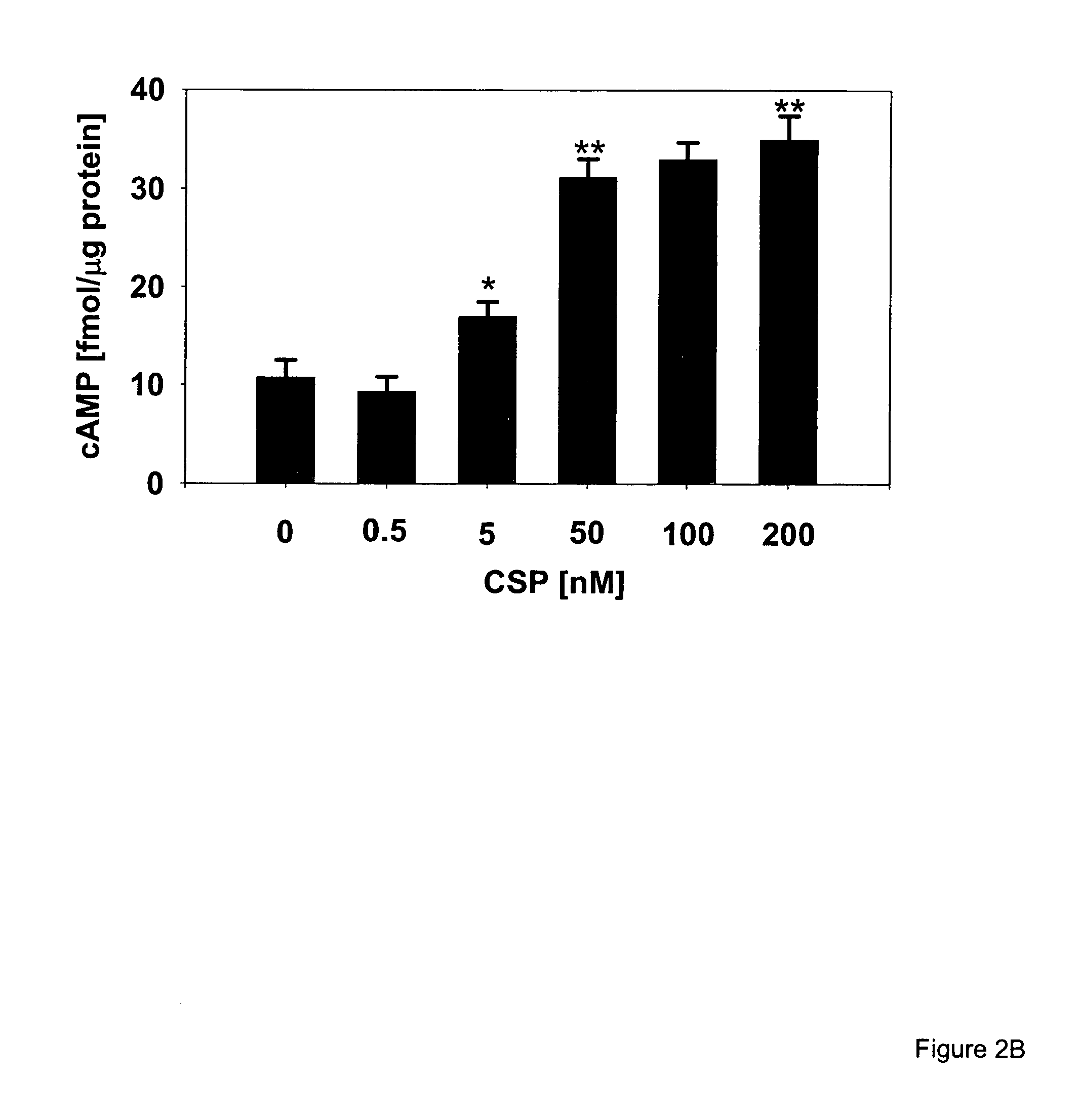Compositions and methods for inactivating or suppressing inflammatory cells
a technology of inflammatory cells and compositions, applied in the direction of protozoa antigen ingredients, antibody medical ingredients, peptide/protein ingredients, etc., can solve the problems of serious complications, over one million children each year, and serious morbidity, so as to reduce the probability of relapse
- Summary
- Abstract
- Description
- Claims
- Application Information
AI Technical Summary
Benefits of technology
Problems solved by technology
Method used
Image
Examples
example 1
Effect of Malaria Circumsporozoite Protein on Kupffer Cells (Liver Macrophages)
Materials and Methods
[0244]Materials. Heparinase, heparitinase and chondroitinase ABC were from Seikagaku (Falmouth, Mass.), collagenase H was from Boehringer (Indianapolis, Ind.). Recombinant human RAP was purchased from Innovative Research (Southfield, Mich.). The mAb 8B8 against the 85 kDa light chain of LRP-1 was from Maine Biotechnology Services (Portland, Me.). Goat anti-mouse IgG conjugated to fluorescein isothiocyanate (FITC) was from Chemicon (Temecula, Calif.), protein A-FITC and protein G-Alexa 488 were from Molecular Probes (Eugene, Oreg.). Zymosan A (Saccharomyces cerevisiae), 12-O-tetradecanoylphorbol-13-acetate (PMA), type I collagen, lactoferrin (LF; from bovine colostrum), luminol (5-amino-2,3-dihydro-1,4-phthalazinedione), lucigenin (N,N′-Dimethyl-9,9′-biacridinium dinitrate), dibutyryl cAMP (db-cAMP), 9-(Tetrahydro-2-furanyl)-9H-purin-6-amine (SQ 22,536), N-[2-(p-Bromocinnamylamino)ethy...
example 2
In vivo Assessment of CSP or a Biologically Active Fragment in Inflammatory Bowel Disease
Materials and Methods
Ulcerative Colitis Model
[0276]Ulcerative colitis is induced in Sprague Dawley rats (7-8 weeks old) by the administration of a solution in which 90 mg of trinitrobenzenesulfonic acid (TNB) is dissolved in 1.5 ml. of 20% ethanol. Certain groups of rats are treated with various doses of the CSP or active fragment and other groups are treated with a vehicle control. In these studies, the preferred route of administration of the CSP or active fragment is by catheter to deliver the compound directly to the colon. Most preferably, a rubber catheter such as a Nelaton catheter No. 8 is used (Rush Company, West Germany). The compound is preferably introduced about 6 cm from the rectum in the rat. One of skill in the art will be familiar with the use of such catheters to deliver compounds to the desired site in rats of varying ages and weights and in other experimental animals. During ...
example 3
In vivo Assessment of CSP or an Active Fragment of CSP in a Multiple Sclerosis Model
Lysolecithin Induced Demyelination
[0286]For these experiments, 12 week old SJL / J mice are anesthetized with sodium pentobarbitol and a dorsal laminectomy is performed in the upper thoracic region of the spinal cord. A 34 guage needle attached to a Hamilton syringe is used to inject 1 μl of a 1% solution of lysolecithin directly into the dorsolateral aspect of the cord. Animals are killed on day 21 post injection and the injected region of the spinal cord is removed and processed for morphological evaluation.
[0287]As a second model of demyelination, intraspinal injection of lysolecithin is used. Twelve-week-old SJL / J mice are anesthetized by intraperitoneal injection of sodium pentobarbitol (0.08 mg / g). Dorsal laminectomies are performed on the upper thoracic region of the spinal cord and lysolecithin (L-lysophosphatidylcholine) (Sigma, St. Louis, Mo.) is injected as described (Pavelko, K. D., van Eng...
PUM
| Property | Measurement | Unit |
|---|---|---|
| molecular weight | aaaaa | aaaaa |
| molecular weight | aaaaa | aaaaa |
| molecular weight | aaaaa | aaaaa |
Abstract
Description
Claims
Application Information
 Login to View More
Login to View More - R&D
- Intellectual Property
- Life Sciences
- Materials
- Tech Scout
- Unparalleled Data Quality
- Higher Quality Content
- 60% Fewer Hallucinations
Browse by: Latest US Patents, China's latest patents, Technical Efficacy Thesaurus, Application Domain, Technology Topic, Popular Technical Reports.
© 2025 PatSnap. All rights reserved.Legal|Privacy policy|Modern Slavery Act Transparency Statement|Sitemap|About US| Contact US: help@patsnap.com



